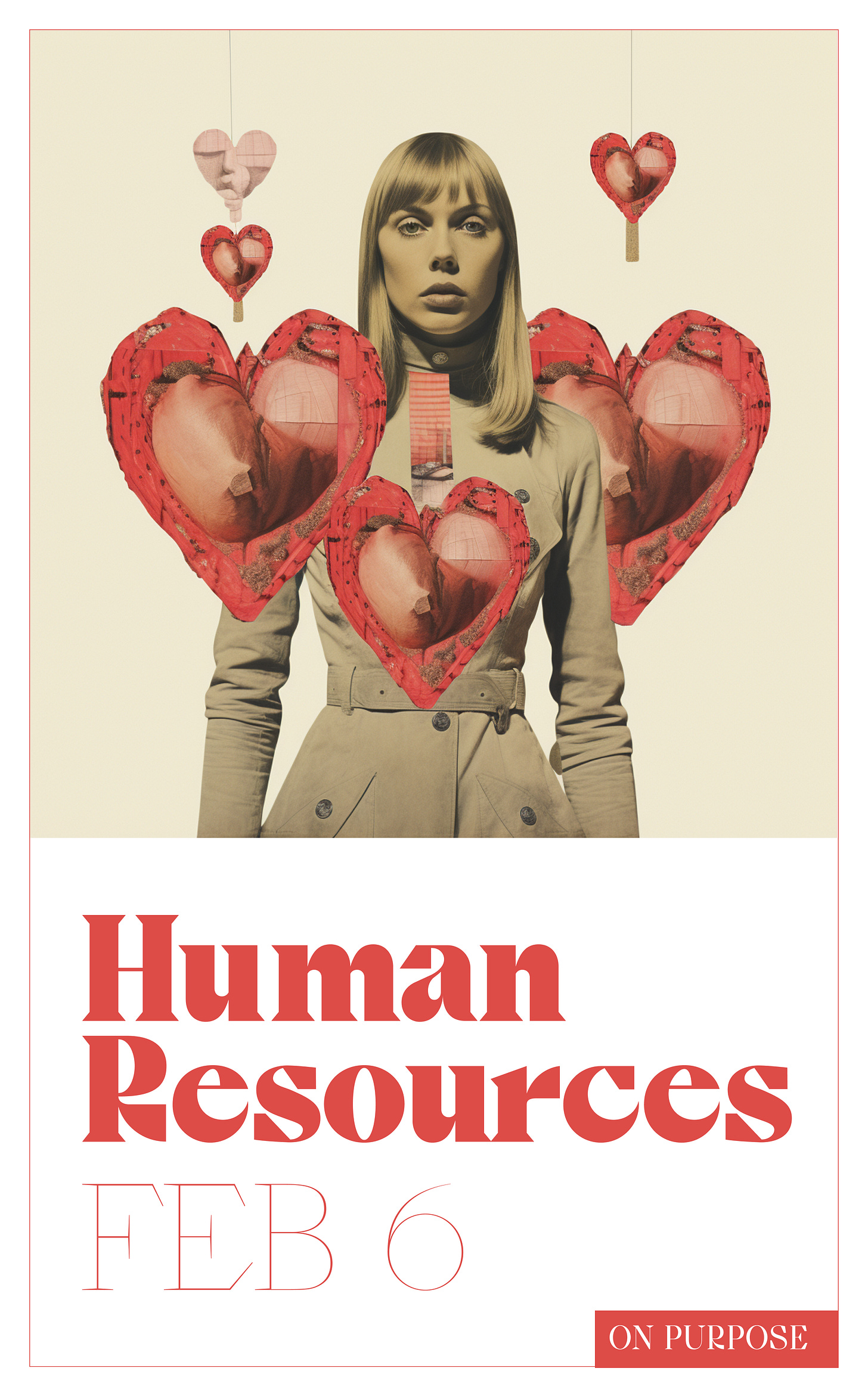🫀Human Resources • Love, Work and Joni Mitchell
I've looked at life from both sides now / From win and lose and still somehow / It's life's illusions I recall / I really don't know life at all
Welcome to the first edition of
🫀 Human Resources🫀
Little nuggets of art, music, science and culture that shed light and ask interesting questions about what gives us purpose.
Joni Mitchel wrote Both Sides, Now when she was 23.
The year before, she’d given birth to her first child — an unplanned pregnancy with her ex-boyfriend who blew the scene three months in, leaving her to deliver and care for the baby alone.
“[He] left me three months pregnant in an attic room with no money and winter coming on and only a fireplace for heat. The spindles of the banister were gap-toothed—fuel for last winter's occupants.”
The best you could hope for as an unwed mother in 1965 was a shotgun wedding — it was still illegal to distribute the pill and Roe wouldn’t be decided for another 8 years. Alone with no job, no house and no partner, she gave up the baby and began writing songs. Both Sides, Now was one of the first.
There are several recordings of the song — Judy Collins made it a hit in ‘67, Neil Diamond took a pass in ‘69, and even Dexys Midnight Runners covered it in 2016. Joni herself didn’t record it at first — there’s a story somewhere that Bob Dylan told her she shouldn’t because she was too young — she should wait until she had really “lived the experiences” she was singing about. 👀
She eventually (dunked pretty hard on Dylan and) recorded it twice — first for Clouds in ‘69, and then again in 2000, as the last track of an album bearing the same name. I love listening to them back to back — the way the years between the recordings transform the song.
Her ‘69 recording is all melody and meter. You can feel how proud she is of her technical skill as she strolls up and down the words, evenly resting on each phrase with a graceful precision that shows off her technique but does little to reveal where the song was born. I think it’s beautiful because of the restraint; the tension between her effortlessness and the depth of the verses is its own story. It’s optimistic in spite of itself.
I met Joni Mitchell in a Greenville, SC movie theater in 2003. 21 years old and on the edge of my life, I was watching Emma Thompson find out Alan Rickman is cheating while the later recording swells in the background. Tears rolled down my cheeks and the song landed in me, a revelation to someone for whom music had always had to pass the satanic sniff test with mom.
Love in the early 2000s wasn’t just for romance, it was also something to seek at work. We were 4 years away from the first iPhone, but Steve Jobs was already out and about giving speeches about how to find it.
"You've got to find what you love. Your work is going to fill a large part of your life, and the only way to be truly satisfied is to do what you believe is great work. And the only way to do great work is to love what you do.”
At the time, we didn’t know doing “great work” for Steve-o meant terrorizing his colleagues and having scary temper tantrums at the office, but I tend to think we would have chalked it up to the price of Greatness. He might have been a nerdy, turtleneck-wearing weirdo but he was holding everything anyone ever wanted in the palm of his hand.
So we listened. So many of us. We ran right out to find the love of our life in a job. And we kept running, from job to job, hoping that this one would finally be the one to let us lay down our burdens and come into our own.
The second recording of Both Sides, Now is gravelly and slow. There’s no more agile stone stepping across the lyrics. No more strumming, chugging guitar. Her phrasing is breathless and deep — broken in places. Optimistic defiance has been replaced by rich, broad, stability surrounded by the swells of a full orchestra and y’all I cannot listen to this song without crying. She wanders through the lyrics, tenderly collecting all the things that make up love and it absolutely breaks your heart — not because it’s sad, but because it’s everything. There’s confusion and wonder and disappointment and excitement and freedom and stagnation and celebration and pain and there isn’t a shred of it that doesn’t belong. Love needs all the parts and even then you can’t quite get your hands around it.
Steve Jobs didn’t love his work. Steve Jobs was addicted to being right and being worshipped and making money hand over fist. That has nothing to do with love and whatever it has to do with work is a lot more about domination than greatness.
I am not 21 anymore. It’s been a while since I gave up the search for The Job that Will Save My Life, but I have never stopped looking to love the things that require me to work. Marriage, parenthood, friendship — writing, managing, gardening, leading, cooking, making, oh my god! The work!! The ecstasy of being absolutely terrible until you’re not. Of grasping and thrashing and searching and finally for a second brushing with the divine.
Who are we, if not what we love? Who else could possibly be worth all that work? We can’t give up just because greed sent us looking for ourselves in all the wrong places.






Loved this :)
Ah, Steve Jobs’ messaging, and that of so many other corporate honchos, had us looking for work in all the wrong places for such a long time! Companies still try to sell us that illusion of finding family and values, as if those things could reside in a corporate greed machine! Lovey piece. So glad to have stumbled upon your substack.